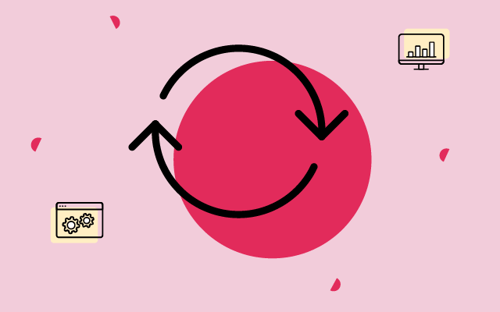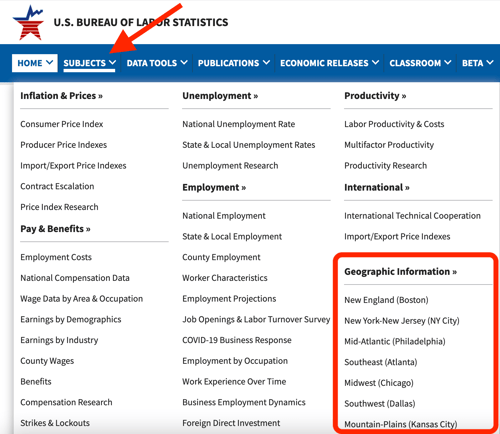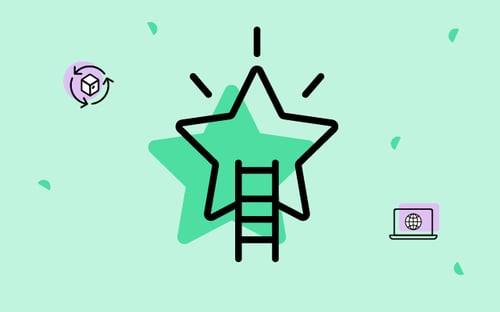After successfully enabling the sales organization with competitive insights at Intellum, Kaitlyn Smith — Product Marketing Manager and competitive intelligence practitioner extraordinaire — set her sights on the Customer Success team.
“When you think of competitive intelligence, you start by thinking about how to use CI to win more deals, but as a PMM it’s my job to be the voice of the customer from start to finish. So, once the sale is won, who is the one delivering our message?” said Kaitlyn. “CSMs are the ones focused on actually getting adoption. So from a CI standpoint, why wouldn’t I want them to know this intel?”
Senior Strategic Relationship Manager Alexia Chapparone from Intellum’s CS team was waiting to greet Kaitlyn’s competitive intelligence strategy with open arms.
“Before Crayon we had to rely on other people offering competitive information to us, which wasn’t always easy,” explained Alexia. “We knew it was a tool our sales team was already using, and that we would be able to leverage it similarly because our competitors are the same.”
With the next use case for CI at Intellum identified, Kaitlyn jumped into action and enabled Alexia to achieve a massive win: pulling up a battlecard mid-conversation to save an at-risk customer!
We sat down with Kaitlyn and Alexia to learn how they used Crayon to reduce churn at Intellum. Read on to learn how you can start leveraging competitive insights to improve retention rates at your company.
Step One: Introducing CI to CS: Putting Crayon Intel at their fingertips
With a successful CI function already in place on one side of the company, how did Kaitlyn go about introducing Crayon to a new department? The key: making competitive insights as easily accessible to the CS team as possible, by putting it where they already live.
“Something I learned from my background in sales, is that if it’s not in front of them, they aren’t going to think about it. They need it to be quick, accurate, and available,” said Kaitlyn. “When I shifted to enabling CS, it was front of mind that their time is valuable as well, so the last thing I wanted was for them to have to go into a new tool to receive this information. Being able to find Crayon in our source of truth, Salesforce, makes it easy for them to access it.”
Alexia was quick to agree that the Crayon + Salesforce integration made onboarding all around easier and quicker for the team. “We had a team training session where we talked about how Crayon adds value to our conversations every day,” she said. “We noticed that it being in Salesforce would help remind us to bring competitive insights up in our conversations.”
Step Two: Proving the value of competitive intelligence for CS
With awareness of Crayon in place, Kaitlyn set out to prove the value of competitive intelligence to the CS team in order to stoke adoption of the program. So, how’d she do it? By creating assets and updating battlecards with insights her CSMs actually want and need.
“My CSMs are great at coming to me and telling me what they need. They aren’t afraid to say the thing, which I appreciate because I am not day to day with customers,” said Kaitlyn. “On top of that, Crayon sources insights from our market that allow our CSMs to surprise and delight, which is a huge differentiator for us.”
Alexia was able to see the value of the intel her team was receiving and how much time it saved them throughout the day.
“Being able to go into Crayon and not have to reinvent the wheel before every customer call allows us to think a little bit less and do more with our time,” said Alexia. “Of course, we all add our own flair, but Crayon battlecards provide us with the core messaging we communicate throughout the customer journey.”
Step Three: Using Crayon to renew the deal
With all the pieces in place, it was time for Alexia to put Kaitlyn’s competitive intelligence program to the test by pulling up a battlecard mid renewal call when a customer mentioned an Intellum competitor.
“One part of their business was unhappy, so the customer told me flat out that they were looking at our competitor,” explained Alexia. “In that moment, I opened Crayon and pulled up their battlecard. As the customer asked me specific questions, I was able to address all of her concerns — and I was even able to plant some questions for her to ask that competitor.”
“I wouldn't have had that before Crayon. I would have had to say ‘let me check and get back to you,’” she said. “So being able to stay in the moment and in the flow, being very confident in what I am telling the customer just shows them that we are listening to what our industry and competitors are doing, that I know that customer and am capable of supporting them.”
“In the moment, I knew that it was a competitive situation that Crayon had allowed me to prepare for, so when it came up I didn’t have to panic,” continued Alexia. “If I’m being honest, there aren’t any other tools I use that give me that instant gratification.”
The best part is…. “They renewed! It feels great, Crayon allowed me to be tremendously confident in the moment knowing I was prepared to have the conversation,” finished Alexia.
So, how did Alexia access the right competitive insights so quickly? As it turns out, Kaitlyn had been preparing the CS team for a moment like this all along.
“Kait organizes all the battlecards the same, so no matter the competitor I know where to look on the battlecard for the information I need,” said Alexia. “I don't have to jump around or scour through endless pages of information, with Crayon it’s available with one or two clicks.”
“I value consistency and a repeatable process,” explained Kaitlyn. “Situational fluency is really important as our CSMs’ accounts shift and we move across verticals, having consistent battlecards in Crayon reduces the time it takes to find exactly what they need for each conversation they’re having.
Unlocking The Power of CI for CS
Encouraged by this win, Alexia is dedicating more time to CI and has become a champion of Crayon at Intellum.
“Having such a quick and easy reaction to a customer while defending our product just made me want to invest more time in Crayon,” she said. “It felt so good and powerful to have all the answers at my fingertips in that moment.”
For Kaitlyn, Alexia’s success inspires her to commit even more to enabling the CS team with competitive intelligence.
“A big differentiator of ours is our people, so anything that I can do to use CI to help push that differentiator forward, we’re going to do,” said Kaitlyn. “Like using Crayon — we’re going to continue using it to improve the customer experience and keep our renewals high.”
"I didn't quite know the power of a CI tool and program before using Crayon, but now I see and realize how impactful it is for any business to win and retain competitive business. My only wish is that we had gotten started sooner because saving that one at-risk customer single-handedly paid for Crayon.”
.jpg)
Related Blog Posts
Popular Posts
-
 How to Create a Competitive Matrix (Step-by-Step Guide With Examples + Free Templates)
How to Create a Competitive Matrix (Step-by-Step Guide With Examples + Free Templates)
-
 Sales Battlecards 101: How to Help Your Sellers Leave the Competition In the Dust
Sales Battlecards 101: How to Help Your Sellers Leave the Competition In the Dust
-
 The 8 Free Market Research Tools and Resources You Need to Know
The 8 Free Market Research Tools and Resources You Need to Know
-
 6 Competitive Advantage Examples From the Real World
6 Competitive Advantage Examples From the Real World
-
 How to Measure Product Launch Success: 12 KPIs You Should Be Tracking
How to Measure Product Launch Success: 12 KPIs You Should Be Tracking



%20(1).png?width=500&name=CI%20Strategy-CI%20Audit%20(1)%20(1).png)